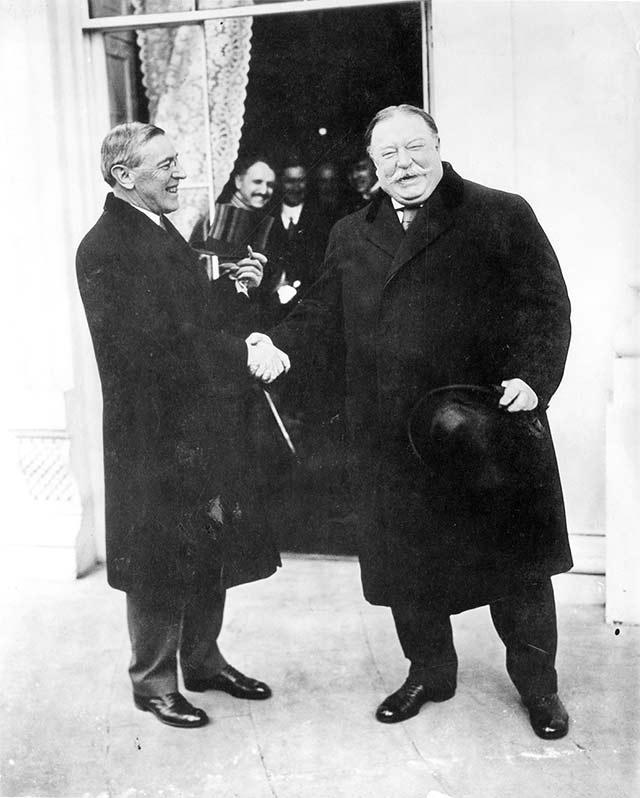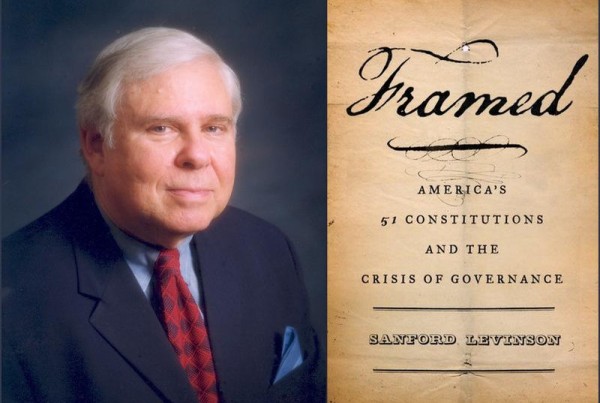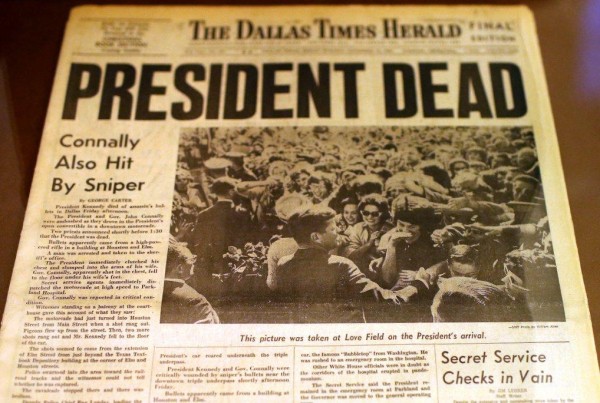One hundred years ago, a president took office who would set the course of the American century, end an era of isolationism, set the stage for the New Deal and eventually become one of the most controversial and fundamentally misunderstood figures ever to lead the nation.
A new biography corrects a lot of misconceptions about the 28th president, but perhaps more importantly humanizes and brings to life an important figure in the American narrative.
Pulitzer Prize winner and author A. Scott Berg joined KUT’s David Brown in the studio to discuss his new book, “Wilson.”
“There is a misconception of who he was, and that’s probably the main reason i wanted to write this book,” Berg said. “To show that he was possibly, not forgetting Lincoln here, the most deeply passionate, highly emotional president we ever had.”
Wilson’s road to the White House was a rather short one. In October 1910, he was the president of Princeton University. In November 1912, he was elected president of the United States, serving a partial term as governor of New Jersey in between.
“Woodrow Wilson enjoyed the most meteoric rise in American history, period,” Berg said. “He was hand-picked by possibly the most corrupt machine in the most corrupt state in the union to be their puppet, to be their face man. The first thing he did was kick out that very machine. He barred them from entering state buildings.”
Once Wilson took office, he brought in a progressive agenda called “The New Freedom” that introduced many current government initiatives that exist today, such as the eight-hour workday, modern income tax and the Federal Reserve System. “He brought a whole new definition to what presidents do and how they do it,” Berg said.
While Wilson pushed forward a progressive agenda, he also supported regressive measures such as Jim Crow laws in federal workplaces. By allowing two of his cabinet members to introduce segregation in the post office and treasury department, he set back many African Americans who had started to make inroads in these offices.
“When he became president, integration was on his mind,” Berg said. “But he truly felt in his heart of hearts, the country simply wasnt ready for it. Wilson felt that whenever integration hit this country, there would be a bloody revolution, and part of him didn’t want it on his watch.”
This was a significant black mark on Wilson’s legacy and an example of one of the contradictory aspects of his presidency, according to Berg. He added that Wilson’s presidency 100 years ago can still provide insight to where we are as a country today.
“Now a 100 years from Wilson’s inauguration, people are coming to realize that where we are today, not only mirrors everything Wilson went through, but we’re all the products of the world Wilson invented. All progressive legislation goes back to Wilson. For use or misuse, every president who’s offered an incursion to another country goes back to Wilson’s notion, this introducing of a moral component to American foreign policy.”
You can listen to the entire interview in the Soundcloud player above. “Wilson” is on bookshelves now.

































